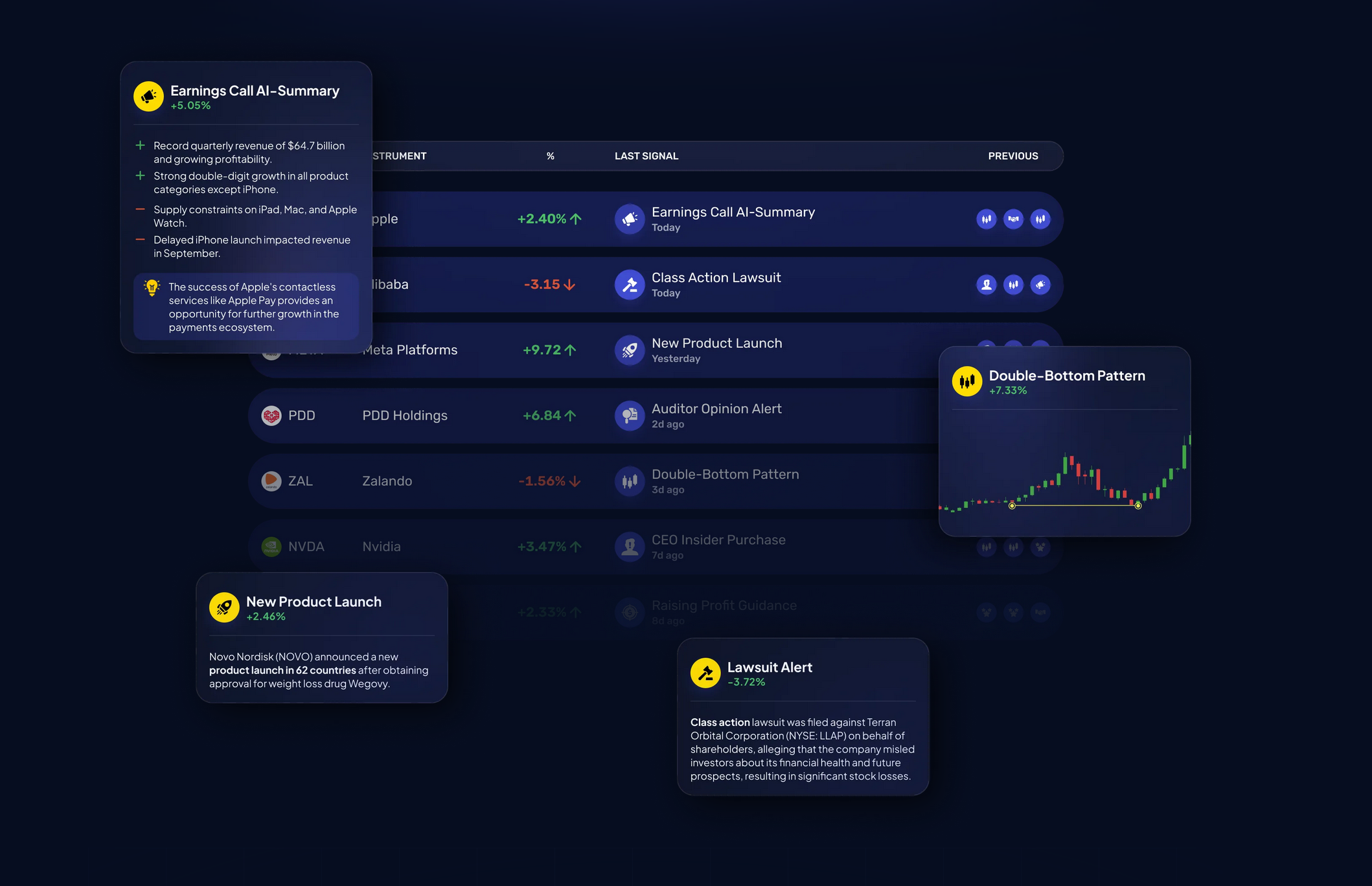20 New Info To Selecting AI Stock Investing Analysis Websites
20 New Info To Selecting AI Stock Investing Analysis Websites
Blog Article
Top 10 Tips To Evaluate The Customer Service Of Ai Platform For Predicting And Analyzing Stocks
Customer support plays a crucial role in the selection of an AI trading platform. Support that is reliable and prompt will make a huge difference in solving problems, optimizing utilization of the platform and ensuring a smooth trading experience. Here are the top ten tips for evaluating the customer service provided by these platforms.
1. Evaluate Support Availability
24/7 Support: Find out whether the platform provides round-the-clock assistance. It's crucial, especially for trading on global markets.
Business hours: If you don't have support 24/7, make sure support is available for you during trading hours.
Check for holiday coverage.
2. Test Response Times
Initial response. Test your support by sending them a query.
Time to resolve The problem: Don't just acknowledge the problem however, you must also establish the time it will take to solve it.
Live chat: If live chat is enabled Test its effectiveness and responsiveness.
3. Assess the Support Channels
Multichannel Support: The platform must provide support through various channels (e.g. live chat, email and phone).
You can check your preferred channel to determine if it's reliable and available.
Self-service solutions: To speed up solutions to problems, check out comprehensive information bases, FAQs or community forums.
4. Examine Support Qualities
Support agents should be educated about trading platforms, technical issues, and platforms.
Problem-solving: Find out if agents are able to effectively solve complex problems, or escalate them as appropriate.
Professionalism: Ensure that your the interactions with support are professional, friendly and efficient.
5. Find Account Managers who are committed
Premium support: Check to see if those on higher-tier plans, or those who are institutional customers, are able to access a separate account manager.
Individualized assistance: Check whether account managers offer tailored support and proactive guidance.
Relationship Building: Ensure that the account managers you collaborate with are always accessible. It is also possible to build relationships over time.
Examine the supporting documents
Knowledge base: Verify that the platform includes an organized, searchable and extensive knowledge base, including tutorials and guides.
Video tutorials - See whether your platform provides videos or webinars that are suitable for visual learners.
API documentation: If you are a developer to find an easy-to-read and precise API document.
7. Examine the Community Support and Peer Support
User forums - Check to see if the site has a community or forum where users can discuss tips and share solutions.
Social media groups: Search for unofficial social media groups (e.g., Reddit, Facebook, LinkedIn) where users discuss the platform.
Community engagement: Determine whether team members are active participants in discussions or forums within the community.
8. Evaluate Escalation Processes
Issue escalation. You should have a clear process to escalate unresolved cases to the support chain or to management.
Follow-up: Ensure that support has followed up on a concern after the issue has been resolved to make sure the issue was completed.
Feedback loop: Ensure that the platform is gathering feedback from its users to improve support services.
9. Test Support in critical situations
Contact customer service in times of high volatility to find out how they react.
Technical issues: To see the way support can handle a specific issue (e.g. log-in problem or data discrepancy) You can simulate a problem.
Trade execution: Find out whether the support staff can assist with urgent issues related to trade (e.g. delayed execution, unsuccessful orders).
Look through User Feedback for support
Online reviews: Use platforms such as copyright G2 or Reddit for user reviews to measure overall satisfaction.
Find testimonials and case studies that highlight positive experiences.
Review the platform's complaints handling and feedback handling policies.
Bonus Tips
Test out the platform through a trial or demo period.
Language support: Check if you can get support in your language of choice if you don't know English.
Onboarding and training Learn whether there are any training sessions that can aid new users to get on the right track.
If you follow these guidelines to evaluate the support provided by AI stock predicting/analyzing trading platforms Make sure you choose an option that is quick, efficient and efficient assistance. A platform that provides excellent customer support can enhance your experience and allow you to make the most of its features. View the best continued for ai trading for site examples including ai trading, ai trading tools, ai stock trading app, ai for stock predictions, ai stocks, market ai, ai stock picker, ai investing app, using ai to trade stocks, ai for investment and more.
Top 10 Tips To Assess The Scalability Ai Stock Predicting Trading Platforms
Analyzing the scalability of AI-driven trading and stock prediction platforms is vital to ensure they can handle increasing volume of data, demands from users, and market complexities. These are the top ten suggestions to evaluate the scalability of AI-driven stock prediction and trading platforms.
1. Evaluate Data Handling Capacity
Tips: Make sure the platform can handle and analyze large amounts of data (e.g., historic stock data, real-time market feeds, as well as other data sources like news or social media).
Why is that? Scalable platforms must be able to handle increasing amounts of data with no reduction.
2. Test the Real-Time Processing Capabilities
Tip: Assess how well the platform handles real-time data streams, such as live stock prices, or breaking news.
Why the trading decision is made in real-time and delays can lead traders to miss out on opportunities.
3. Cloud Infrastructure and Elasticity Cloud Infrastructure and Elasticity: Take a look
Tips - Find out if a platform uses cloud infrastructure, e.g. AWS or Google Cloud.
Cloud platforms provide for elasticity. The system can be scaled up or down depending on the demands.
4. Algorithm Efficiency
Tip : Check the computational efficacy and accuracy of AI models to make predictions.
Reason: Complex algorithms can be resource intensive Therefore, the ability to optimize these algorithms is essential for scalability.
5. Learn about parallel processing and distributed computing
Tips: Find out if a platform is able to use parallel processing or distributed computing frameworks.
Why? These technologies can speed up data processing across many nodes.
Review API Integration & Interoperability
Tips Check the platform's capability to connect with APIs from outside (e.g. market data providers, brokerage APIs).
Why? The platform is able to adjust to the changing requirements of market conditions and data sources because of seamless integration.
7. Analyze User Load Handling
Tip: Simulate the impact of high user traffic to test how the platform performs under high load.
Why should scalable platforms deliver the same quality of service regardless of how many users are there.
8. Analyze the model retraining and the model's adaptability
Tip - Assess how often the AI model is retrained, and with what degree of efficiency.
Why: As markets change and models are updated, they must be updated rapidly to remain exact.
9. Check Fault Tolerance (Fault Tolerance) and Redundancy
Tips - Ensure that your platform is equipped with redundancy and failover mechanisms for dealing with hardware or software malfunctions.
Why: Because the cost of downtime when trading Fault tolerance is a must to scaling.
10. Monitor Cost Efficiency
Tips: Examine the costs of scaling the platform, including cloud resources, storage for data, and computational power.
Why: Scalability should not result in an unsustainable price, so balancing performance and expense is essential.
Bonus Tip Future Proofing
Check that the platform has been designed to incorporate emerging technologies (e.g. quantum computing, quantum computing or advanced NLP) and adapt to regulatory changes.
By focusing your attention on these factors and focusing on these factors, you can evaluate the capacity of AI prediction as well as trading platforms. This ensures that they are durable and effective, and ready for further expansion. See the top rated his explanation about ai tools for trading for site info including stock predictor, best ai stocks to buy now, stock trading ai, ai stock prediction, best ai stocks, best ai for stock trading, chart ai trading, trading ai tool, free ai stock picker, can ai predict stock market and more.